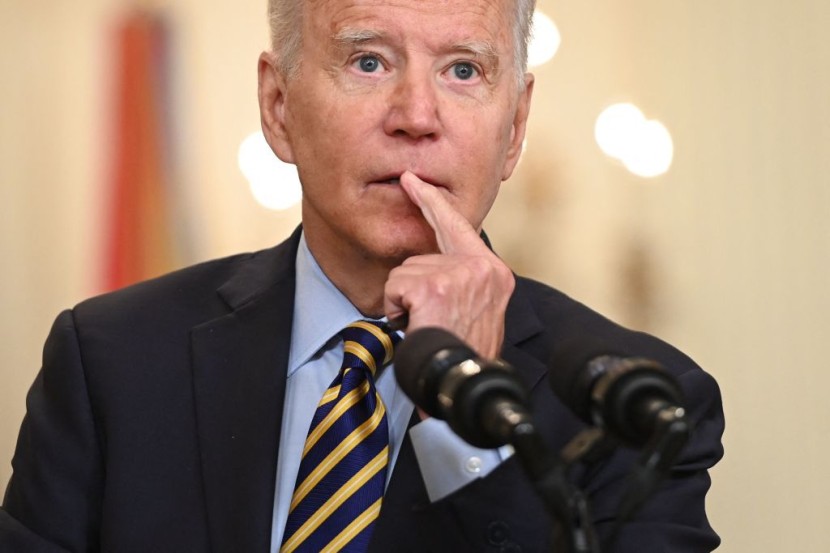
US President Joe Biden's assertion that it is "not inevitable" the Taliban would take Afghanistan once the US withdraws troops is just hypocritical, writes Tomislav Jaki, a Croatian journalist, and former foreign policy advisor to president Stjepan Mesić.
As the deadline for the total departure of US soldiers from Afghanistan approaches, more comparisons are heard about the US military's retreat from South Vietnam in the 1970s.
Joe Biden is under fire after the Taliban took control of three more Afghan cities on Sunday, continuing their rapid progress throughout the nation. It comes after the loss of two more cities on Saturday and Friday, heightening worries of a collapse of the Afghan government.
All US soldiers will leave the nation by the end of August, according to President Joe Biden. North Atlantic Treaty Organization's (NATO) partners have also pulled out of Afghanistan, allowing the Taliban to take control of a large portion of the nation.
Taliban gains more ground in Afghanistan
They are now focusing their efforts on provincial capitals across Afghanistan, after initially seizing rural regions, as per Express.co. The Taliban captured Kunduz and Sar-e-Pul, the capitals of the Kunduz and Sar-e-Pul provinces, respectively, in northern Afghanistan on Sunday.
Later, they expanded their gains by conquering Taloqan, Takhar province's capital. The Taliban's latest string of wins began on Friday when they took control of Zaranj, their first major city in several years.
They, then, took Sheberghan, the provincial capital of the northern Jowzjan province, on Saturday. Five Afghan cities are currently under Taliban control, the highest number since the Taliban were ousted from power in 2001 by a US-led assault.
The Taliban, who were the principal target of NATO's and the United States' military presence in Afghanistan, are swiftly gaining control of all major areas of the nation, including border crossings with numerous neighboring countries, such as Iran.
As one might expect, Washington dismisses such comparisons although they are well-founded and that it is nearly inevitable that the Taliban will take control of the entire nation once the withdrawal is finished. In both Afghanistan and Vietnam, a year-long conflict preceded the evacuation of foreign forces.
According to some estimates, more than 70,000 Afghan and Pakistani civilians have been killed in Afghanistan, resulting in a scenario where almost half of the country's population is currently living in poverty. Per Big News Network, everyone in the south who had collaborated with the Americans in any manner suffered in Vietnam, with some being transferred to special camps for long-term "re-education."
Afghanistan downplayed the Taliban threat
Those who have worked with NATO soldiers in Afghanistan, even if merely as translators, publicly fear for their lives in their nation under Taliban authority. Hundreds of people floated for weeks around the coast of Vietnam in tiny boats, hoping to be picked up by their American allies, whose battleships might arrive on the horizon at any moment.
People who have worked with foreign forces in Afghanistan, based on the example of South Vietnam, have no illusions. As a result, a wave of refugees has already begun to flow towards neighboring nations, and there is little question that this wave will eventually reach Europe.
As the Islamists recovered swaths of countryside, President Ashraf Ghani generally downplayed the Taliban threat, claiming he had tactically moved soldiers to the cities because they would be easier to protect. However, it appears that even Afghanistan's metropolises are no longer a haven for government soldiers who are heavily outmanned and outgunned.
Following combat in Kunduz on Sunday, a Taliban flag was raised in the city's main area. The Taliban had taken control of everything but the city's airport. According to a Kunduz local, the city is engulfed in turmoil.
Kunduz is a vital crossroads with easy access to most of northern Afghanistan as well as Kabul, Afghanistan's capital, which is approximately 200 miles distant, and it is the Taliban's biggest significant gain since they started an attack in May. It has long been a target for the Taliban, who temporarily took control of the city in 2015 and again in 2016, but were never able to maintain it for long, as per Daily Mail.
Related Article: Russia, China Offer Support to Syria as Joe Biden Moves to Wind Down Afghanistan-Iraq War








